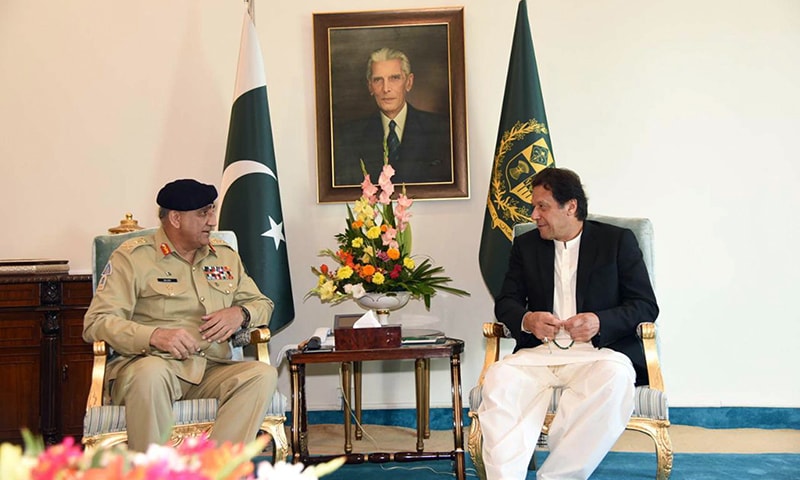
Prime Minister Imran Khan and his advisors may claim that all is well between the ruling party and the establishment but most political observers believe Khan may not be in power for more than a few months.
In his latest editorial for The Friday Times, titled “Come January” Najam Sethi asks the question on the lips of many “Is the party, over?”
As Sethi lays out in his editorial “Last Wednesday, the Speaker of the National Assembly, Asad Qaisar, had to hurriedly adjourn the scheduled session for the day because he couldn’t rustle up sufficient PTI members to complete a quorum. While this isn’t uncommon on any day, the session was especially important for one reason: the government wanted to test the waters before wading in to enact two very important bills. But it is afraid of the consequences if it is unable to muster a parliamentary majority to pass the bills. It fears the opposition will raise an unprecedented hue and cry because both bills are unpopular in the public imagination. One diminishes national sovereignty and the other imposes new hardships on the public. After the rout in the local body elections in KP attributed to inflation and economic mismanagement, ruling party MNAs are loath to support either bill.”
As Sethi notes, “These two bills must be passed in the next week or two before the IMF Board’s meeting in Washington DC. The government is begging the IMF to accept a Presidential Ordinance instead of a Parliamentary Bill for SBP autonomy but the IMF has flatly refused.”
According to Sethi, “The ball is in the Miltablishment’s court. If it bails out Imran Khan yet again when public sentiment against him is at its peak, it will invite severe opprobrium, which will spread disaffection in its rank and file. If it doesn’t, Imran Khan’s government will be immobilized and face the prospect of being ousted. He could react by replacing the current leadership of the Miltablishment by one more committed to bailing him out, but that may invite a severe institutional backlash against him with unforeseen consequences. Or he could call it a day himself.”
Further, “The PMLN has announced it will launch an “agitation” movement to raise the stakes. Given the angry mood of the public, even a limited organizational measure of success could prove difficult to handle for the government. After the TLP protest in which the Punjab Police got the end of the stick instead of giving it to the militant mscreants, it is moot whether the cops will obey orders with any degree of motivation”.
If, however, “the Miltablishment has finally decided it can’t support Imran Khan any more without irrevocably alienating its own support base. Indeed, according to a leading TV channel close to the government, Miltablishment negotiations with Nawaz and Shehbaz Sharif have yielded positive results, with only one or two hurdles to cross before steps are jointly taken to get rid of Imran Khan and install a new government that can transition to general elections as soon as possible. As if on cue, Nawaz Sharif has publicly announced that he will return to Pakistan soon and Maryam Nawaz has publicly confirmed that the next prime minister will be chosen by Nawaz Sharif.”
In the end, Sethi concludes, “Come January, watch this space for an announcement that the party is over. That will happen when a vote of no-confidence ousts Imran Khan, or he sees the writing on the wall and packs his bags, after which a new government backed by the PMLN will take over for a short period to accomplish certain tasks and then dissolve parliament and order new general elections.”
![]()





